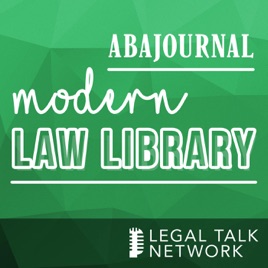
Advertise on podcast: ABA Journal: Modern Law Library
Rating
4.8 from
Country
This podcast has
210 episodes
Language
Publisher
Explicit
No
Date created
2016/04/15
Average duration
44 min.
Release period
16 days
Description
Listen to the ABA Journal Podcast for analysis and discussion of the latest legal issues and trends the first Monday of each month. Also hear discussions with authors for The Modern Law Library books podcast series.
Podcast episodes
Check latest episodes from ABA Journal: Modern Law Library podcast
'Police & the Empire City' explores race and the origins of the NYPD
2024/02/14
In Police & the Empire City: Race & the Origins of Modern Policing, Matthew Guariglia looks at the New York City police from their founding in 1845 through the 1930s as “police transitioned from a more informal collection of pugilists clad in wool coats to what we can recognize today as a modern professionalized police department.”
From the beginning, race and ethnicity had a major impact in the policing of New York City. In a city where the top echelons of power were held by Anglo-Dutch Protestants, the streets were patrolled by Irish and German immigrant police officers, sometimes enforcing the Fugitive Slave Act by snatching Black people off the streets and sending them back to enslavement in the South.
In this episode of the Modern Law Library, Guariglia and the ABA Journal’s Lee Rawles discuss what the early period of policing in New York City can tell us about policing today. Rawles shares her own ancestor’s path from immigrant to police court judge on the West Side of Chicago (though the dates she cites in the interview are incorrect–Michael J. O’Donoghue emigrated from Ireland in the 1874 and was appointed to the police court in 1901.)
For Irish and German immigrants, a job on the police force was a path out of poverty and towards whiteness and political power, but you would be asked to prove yourself by visiting violence on your own community. African American community leaders hoped the appointment of Black policemen would curb police brutality, but the city was slower than other metropolises like Chicago, who hired James L. Shelton as the city’s first Black officer in 1871. Samuel Battle became the NYPD’s first Black police officer in 1911, eventually rising to the rank of lieutenant and being appointed a parole commissioner.
Meanwhile, in neighborhoods like Chinatown, entire communities went without police officers who spoke the same language as inhabitants. The first Chinese-speaking officer was hired in 1904. That same year, the General Slocum disaster sent the city administration scrambling for German-speaking police officers to locate relatives in Kleindeutschland to identify bodies of the thousand victims of the burned shipwreck. Fears of “the Black Hand” led to the creation of the Italian Squad, and Guariglia shares the story of how the Italian Squad’s founder, Joseph Petrosino, ended up assassinated while on assignment in Sicily.
“Empire City” is an apt name for New York City, as it had international reach and drew on former colonial administrators. One influential police commissioner, Gen. Francis Vinton Greene, had been involved in the U.S. occupation of the Philippines after the Spanish-American War. Tactics first used to subjugate colonists were put to use in the city. As the Progressive Era led to a preoccupation with eugenics, the New York City police were involved in international conversations about the characteristics of criminals and race science. The idea of molding the perfect police officers also caught hold. In this episode, Guariglia shares how the police departments decided they had to teach their officers how to stand and chew properly.
more
Yale Law's Owen Fiss talks about threats to democracy and 'Why We Vote'
2024/01/31
After 50 years as a professor at Yale Law School, Owen Fiss says his students are still idealistic and passionate about the rights won in the Civil Rights Act of 1964 and Voting Rights Act of 1965. As a young lawyer in the late 1960s, Fiss worked with the Department of Justice to implement those laws. A classroom discussion in the spring of 2020 prompted him to draw upon his legal expertise and decades of experience to produce his new book, Why We Vote.
In this episode of The Modern Law Library podcast, Fiss speaks with the ABA Journal's Lee Rawles about the paradox of the court system–the least democratic branch of government–having the responsibility of safeguarding the right to vote. He looks back on his work with the DOJ in southern states, and his time as a clerk for Justice Thurgood Marshall (then on the 2nd U.S. Circuit Court of Appeals in New York) and Justice William Brennan.
Rawles and Fiss also discuss recent threats to the electoral system and right to vote, including the insurrection on Jan. 6, 2021. Fiss shares his thoughts about Section 3 of the 14th Amendment, and whether former President Donald Trump should be removed from the ballot on that basis.
While every book he writes is for his students, Fiss says, he hopes Why We Vote can impress upon a broader audience the privilege and duty of voting and participating in a democracy.
more
Access to justice can be achieved, says ‘Law Democratized’ author–but not without change
2024/01/10
In 2013, the ABA Journal named Renee Knake Jefferson a Legal Rebel for her work co-founding the Michigan State University’s ReInvent Law Laboratory and rethinking how legal services could be delivered to consumers. In 2024, she’s taking a look back at more than a decade of research and experimental programs aimed at improving access to justice–the successes and the failures.
On this episode of the Modern Law Library, Jefferson and the ABA Journal’s Lee Rawles discuss her new book, Law Democratized: A Blueprint for Solving the Justice Crisis. The scale of the issue is daunting: Jefferson cites a study finding that 87% of American households facing legal issues don’t even attempt to seek legal assistance.
“Civil legal disputes—think child support, citizenship, consumer complaints, custody, divorce, employment, guardianship, housing, medical needs—make their way to more than fifteen thousand courts throughout the United States each year,” Jefferson writes. “Whatever the root cause, a massive delivery problem clearly exists for personal legal services.”
Jefferson shares examples of alternative business structures and access-to-justice projects from around the world that challenged old client models. Some–like offering legal services inside British grocery stores–were not successes.
“In theory, consumers could pick up a will with a loaf of bread or a gallon of milk, allowing them to resolve legal problems in a place they already regularly transact,” Jefferson writes. “But grocery store law never flourished.”
Other ventures fared better, and Law Democratized compiles a number of suggestions based on research findings and real-world experiences. Jefferson says she intends the book to not only be a record of what’s been tried, but to also serve as a user-friendly way for the public to learn about changes they could be advocating for at local, state and national levels.
Much of the discussion around improving access to justice involves regulatory reform, and Jefferson shares what has been discovered in states like Utah and Texas through the establishment of regulatory sandboxes. Jefferson also shares ideas about how law schools can be serving their communities as well as their students. Law Democratized suggests ways antitrust law and the First Amendment could be used to expand the public’s access to civil legal services without the direct use of lawyers.
Jefferson and Rawles also discuss her expertise in legal ethics, and what she thinks about the use of artificial intelligence by legal professionals. Jefferson, who writes the Legal Ethics Roundup newsletter on Substack, explains why she doesn’t see the need for an immediate rewriting of the ABA Model Rules of Professional Conduct to address the new technology.
more
How to plan your post-law life
2023/12/20
There are lawyers who love the practice of law so much, they’ll only leave it feet first, in a box. But for those who’d prefer to exit the bar before closing time, Kevin McGoff has advice on planning that next chapter.
In his book, Finding Your Landing Zone: Life Beyond the Bar, McGoff describes his dawning realization that he was missing out on experiences while his life was dominated by his legal practice. He approached his law firm management team with a proposal to gradually decrease his hours and hand off his client work to younger successors.
A big believer in purposeful planning, McGoff offers a series of worksheets to help readers kickstart their own plans for what a life after the practice of law might look like. For McGoff, one of the big dreams of his life—which began while he was stationed in Europe with the U.S. Army—was to spend more time traveling, and to one day live in France. He studied French and even sponsored a club at his children’s school to promote the French language. He and his wife, Patty, loved their trips to France. So when they discussed what the next chapter of their lives would look like, they decided to finally make it happen. A major goal for McGoff in writing Finding Your Landing Zone is to help readers identify what their own equivalent dream would be, and how to find their own France.
In this episode of the Modern Law Library, McGoff and the ABA Journal’s Lee Rawles discuss his motivation to write the book, his advice for planning a financial future, the importance of mentoring younger attorneys, and how he and Patty finally made their dream of living in France happen. He shares tips on building a succession plan and getting your firm on board, and how to actually (mostly) cut down on your hours.
more
Our favorite pop culture picks in 2023
2023/12/06
It's the time of year when The Modern Law Library hosts like to look back on the media we've enjoyed, our annual pop culture picks episode. This year, host Lee Rawles is joined by three ABA Journal reporters: Julianne Hill, Amanda Robert and the Journal's newest employee, Anna Stolley Persky. Naturally, the four discuss their favorite books, but they also have movies, TV shows, podcasts and even a play to recommend. From documentaries to audiobooks, listeners will find ways to occupy the holiday season and the new year. For the full list of recommendations, go to ABAJournal.com/2023picks.
more
How is the true crime genre impacting the way people think about innocence?
2023/11/22
Human beings have told stories about violence and victims from our earliest records. In the nineteenth and twentieth centuries, newspapers and magazines flourished on crime coverage. Hollywood has churned out crime movies and TV shows, based both in fiction and non-fiction. But after the incredible success experienced by the podcast Serial in 2014 and the documentary series Making a Murderer in 2015, a new wave of popular media exploring real cases of potential wrongful convictions burst upon the scene.
While Diana Rickard didn’t consider herself a “podcast person,” her interest as an academic was piqued. The criminology professor began listening to Serial, and became fascinated by what she saw as a new expression of the true crime genre, dubbing it the “New True.”
“These series deserve our attention for what they reveal about our societal understanding of crime and punishment,” Rickard writes in her book The New True Crime: How the Rise of Serialized Storytelling Is Transforming Innocence. “Through them, audiences are receiving ideological messages about punishment. They are also sites where inequality, power and racism are openly examined, playing a role in our public conversations about who is and is not deserving of punishment and who is and is not protected by law. In addition, by using the term ‘New True,’ I am also suggesting these series indicate a new way of constructing truth itself. Questioning the finality of verdicts, framing facts as in the eye of the beholder, the new series unmoor our faith in what is knowable.”
In this episode of the Modern Law Library, Rickard explains how she sees the New True podcasts and documentary series as differing from older media. She and the ABA Journal’s Lee Rawles discuss the differences between crime reporting and this serialized storytelling, and whether the New True series are managing to avoid some of the ethical pitfalls of traditional crime reporting. They also delve into whether debunking things like flawed forensic science or false confessions for the general public may have shifted the way people think about wrongful convictions.
Rickard shares what she has heard from legal experts in the innocence community about the benefits—and drawbacks—of cases catching the eyes of New True producers. She also reveals what surprised her most when she researched the Reddit communities that gather to discuss New True cases.
more
Law grad turns culinary passion into TikTok fame and a brand new cookbook
2023/11/08
Like many others, Jon Kung figured law school would be a safe harbor to weather the storms of the Great Recession. But after emerging from the University of Detroit Mercy School of Law in 2011, Kung changed course.Kung, who is non-binary, says the realization the practice of law was not for them hit after they helped the local prosecutor’s office achieve a conviction in a murder trial. They received a full-time job offer with that office, but decided to turn down the job offer and look for other work. Over the next several years, they established themselves in the Detroit culinary scene, hosting secret pop-up dinners and dumpling classes, and honing their take on “Third Culture cuisine.”
Kung was born in Los Angeles, and spent their childhood in Hong Kong and Toronto before landing in Michigan for college and law school. Their recipes combine elements of Chinese and North American cuisines and cooking techniques.
“This new fusion that I’m referring to as ‘third culture’ takes a more thoughtful approach to the genre,” Kung writes in the introduction to their new cookbook, Kung Food: Chinese American Recipes from a Third-Culture Kitchen. “Third culture embraces each side as equal, drawing from a lived experience that is immersed in both or multiple cultrues, once again taking the mentality of the American culinary renaissance that came around in the 2010s and granting the rest of us the ability to take part in it.”
In this episode of the Modern Law Library, Kung discusses their new cookbook with the ABA Journal’s Lee Rawles—who made the Beef & Broccoli Potpie, the Shrimp Paste Dumplings and the Parmesan-Curry Egg Fried Rice from the book—and shares their favorite meal tips for starving law school students. Kung also shares how they went from word-of-mouth pop-ups to social media fame.
In 2020, when the pandemic made their pop-up meals impossible and the murder of George Floyd prompted massive protests in their home state, Kung began using their TikTok account @jonkung as a place to find community and share recipes. They quickly began gaining followers, and started being approached to partner with brands on projects like developing recipes based on anime series. Kung shares the story of how they were offered the publishing deal for Kung Food, and what it’s like to be a social media influencer.
more
How reckoning with trauma can help you, your clients and the legal profession
2023/10/25
“You can’t think yourself out of trauma,” the introduction to Trauma-Informed Law: A Primer for Lawyer Resilience and Healing warns. “An analytical response is insufficient. As lawyers and law students, we have been trained to learn only with our minds. But there are other epistemologies—other ways of knowing and interacting with the world.”
Trauma-Informed Law, published by the ABA Law Practice Division, arose as a collaborative effort between Canadian lawyers Helgi Maki and Myrna McCallum and American lawyers Marjorie Florestal and J. Kim Wright. It seeks to suggest not only how lawyers can provide better client service to traumatized people, but also how lawyers, law students and judges can deal with their own traumas.
Maki points out many people say that while the initial incident that brought them into contact with the court system was difficult—be it a divorce, an assault or a contract dispute—their experiences once inside the judicial system were harder to bear and caused more emotional damage. What other profession, she asks, would accept that as an outcome for its clients?
In this episode of the Modern Law Library, Maki and the ABA Journal’s Lee Rawles discuss the impact of trauma on the legal profession, and the ways researchers have seen it impact people on a personal and systemic level. Lawyers may be reluctant to label their own experiences trauma, but Maki explains vicarious trauma, and how burnout is a “cousin” to trauma.
One element the book stresses is how important it can be for judges to become aware of how trauma can impact everyone in a courtroom, and basic measures that can be taken to decrease the risk of causing further harm during courtroom proceedings. The ABA House of Delegates recently called for more research to be done on how court workers are impacted by what they see at work and by threats to their personal security.
Maki and Rawles also discuss ways legal professionals can build support systems without endangering client confidentiality, and how law schools can prep law students for the inevitable challenges they will face in the profession.
more
Transform your negotiations with a win-win-win mindset, says author
2023/10/11
Moving from a “win-lose” mentality to a “win-win” mentality has been a central focus of the field of negotiation and conflict resolution since the 1980s, says Sarah Federman. Working to walk away with a deal that pleases both sides was a huge departure from the idea that one side of a transaction will necessarily lose.
But Federman, author of Transformative Negotiation: Strategies for Everyday Change and Equitable Futures, proposes that we can and should adapt our framing to encompass a “win-win-win” mentality. A win-win mentality “attends to the interests only of the signatories, not of those who live out the consequences of the agreement,” Federman writes. “A win-win-win model requires paying attention to those usually not at the negotiation table.”
In this episode of the Modern Law Library, Federman discusses with the ABA Journal’s Lee Rawles how traditional advice around negotiations—from salaries and corporate contracts to landlord disputes and personal lives—makes assumptions based on what’s worked for people who have traditionally held positions of power. Those assumptions could be outdated, unhelpful or actually harmful to minorities and others who have been economically or socially disadvantaged.
Transformative Negotiations was written with four goals, Federman tells Rawles: To help people move “from precarity to stability;” to expose the blind spots in the field of negotiation studies; to propose a new approach to negotiations that addresses oppression; and to show people who do have bargaining power how they can use it to “create more equitable futures.”
Advice Federman shares in this episode includes how woman can approach salary negotiations, how to achieve more economic stability through “inbox colonics,” and why being the nosy neighbor can get people through tough times. She also discusses why bonding events like firm happy hours can actually backfire on employee morale, and how firms can not only hire diverse workforces but successfully retain them.
more
Tales of 3 generations of Black women intertwine to form 'Memphis'
2023/09/27
Admittedly, Tara M. Stringfellow became an attorney simply because her first book of poetry didn’t sell and she needed an income. But after a few years at Crown Castle in Chicago doing family and real estate law, she left, heading straight to the Master of Fine Arts program in creative writing at Northwestern University to get back into the writing game—this time with a lawyer’s sharpened pencil.
more
Complex litigation judge has 50 ideas to simplify the courts
2023/09/06
As both an attorney and judge, Thomas Moukawsher has spent the majority of his career dealing in complex litigation. And the Connecticut Superior Court judge would like to make the legal system—well, less complex.
In this episode of the Modern Law Library, Moukawsher and the ABA Journal's Lee Rawles discuss his ideas and his new book, The Common Flaw: Needless Complexity in the Courts and 50 Ways to Reduce It. Instead of advocating for legislation to simplify the court process, Moukawsher says many of his ideas could be immediately put into practice by judges.
Many of Moukawsher's theories were developed in the wake of having to make changes in court proceedings during the COVID-19 pandemic while court buildings were closed. He says being forced to reexamine the habitual ways cases were heard was actually beneficial. Realizing how much could be conducted remotely gave him confidence that broader systemic changes in that direction are worth trying. One such suggestion is to conduct more jury trials remotely to increase juror numbers and diversity.
The Common Flaw contains many concrete suggestions for lawyers and attorneys to streamline trials, but it was also written to be enjoyed by the public, Moukawsher tells Rawles. To that end, concepts are liberally illustrated with cartoons, and despite having 51 chapters, the book is not doorstopper-length.
Speaking of length, one of Moukawsher's largest concerns is that the length of time many cases drag on decreases public confidence in the legal system as a whole. He says he sees this often in family court, where conflicts that could be handled in weeks stretch out through months or years and can lead to bankruptcy.
He and Rawles also discuss his thoughts on the billable hour; how his ADHD helped him prune away unnecessary flummery in court processes; how he would rethink the job duties of law clerks; and his top tips for not fumbling cross-examinations.
more
Summer reading and back-to-law-school tips
2023/08/23
It’s time for the Modern Law Library’s summer recommendations episode, in which host Lee Rawles shares her pop culture picks with you, plus a re-airing of one of our older episodes with current relevance.
This year, that episode is our 2018 interview with Kathryne M. Young about How to Be Sort of Happy in Law School. Young used her background in sociology to gather data from students, alumni, faculty and law-school dropouts on their experiences during and after law school. Based on her findings—and her own experiences as a law student and professor—she offers advice on protecting your mental health; choosing courses and activities to pursue; managing the practical aspects of your household and budget; and forming relationships with mentors and peers. She also discusses how to decide when if it’s time to leave law school altogether.
Rawles also shares some favorites from what she’s been reading, watching and listening to since our 2022 year-end pop culture picks episode.
If you have your own favorite reads so far in 2023, send your recommendations to books@abajournal.com with a brief description, and we may choose to highlight them on our social media.
more
Podcast reviews
Read ABA Journal: Modern Law Library podcast reviews
Sully99
2020/10/29
Valuable interviews
Lee Rawles is great. Well prepared host and well arranged programs.
Yeits
2019/03/14
Cogent and thoughtful with a great host
Superb podcast. Host Lee Rawles is whip-smart and a great interviewer. Glad to have this in the rotation.
JRScrapple
2020/03/27
Thanks!
The episode with Mary the epidemiologist was really well done. Warm and human and informative. Lots of good science and fiction recommendations. T...
more
Podcast sponsorship advertising
Start advertising on ABA Journal: Modern Law Library & sponsor relevant audience podcasts
You may also like these careers Podcasts

4.7
796
1054
Real Estate Rockstars Podcast
Aaron Amuchastegui
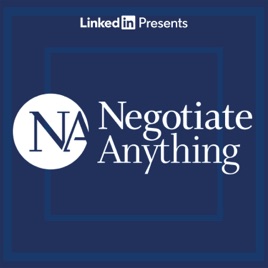
4.7
592
1126
Negotiate Anything
Kwame Christian Esq., M.A.

4.6
1191
854
Manager Tools
Manager Tools
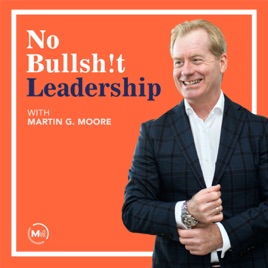
4.8
93
344
No Bullsh!t Leadership
Martin G Moore
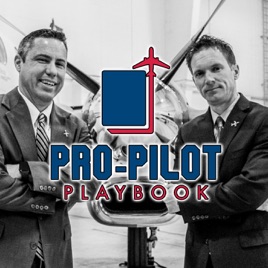
4.8
40
82
The Pro-Pilot Playbook Podcast
Pro-Pilot Playbook

4.8
120
145
The Walker Webcast
Willy Walker
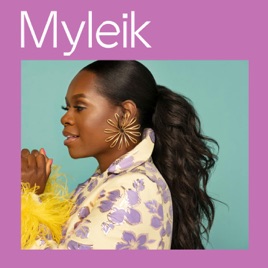
4.8
2065
179
Myleik Teele's Podcast
Myleik Teele

4.9
255
72
Women Rocking Real Estate Podcast
Jen Percival

5
429
224
The Weekly Scrap, Firefighter Podcast
Corley Moore

4.9
129
66
Life In Scrubs
Life In Scrubs



